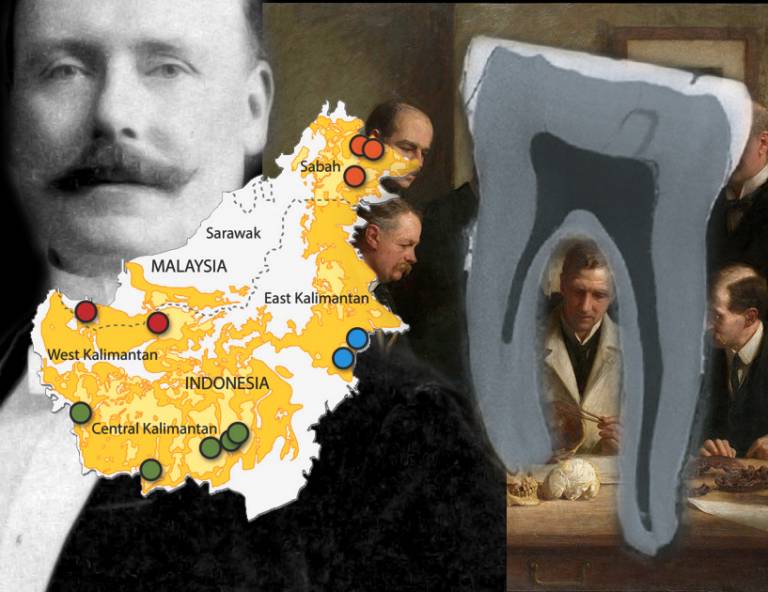Dawson's Dawn Ape was the work of Charles Dawson at Piltdown
10 August 2016
In 1912, palaeontologist Arthur Smith Woodward and amateur antiquarian and solicitor Charles Dawson announced the discovery of a fossil that supposedly provided a link between apes and humans: Eoanthropus dawsoni (Dawson's dawn man).
 The publication generated huge interest from scientists and the general public. However, 'Piltdown man's' initial celebrity has long been overshadowed by its subsequent infamy as one of the most famous scientific frauds in history. This re-evaluation of the Piltdown fossils using the latest scientific methods (DNA analyses, high-precision measurements, spectroscopy and virtual anthropology) shows that it is highly likely that a single orang-utan specimen and at least two human specimens were used to create the fake fossils. The modus operandi was found consistent throughout the assemblage (specimens are stained brown, loaded with gravel fragments and restored using filling materials), linking all specimens from the Piltdown I and Piltdown II sites to a single forger-Charles Dawson. Whether Dawson acted alone is uncertain, but his hunger for acclaim may have driven him to risk his reputation and misdirect the course of anthropology for decades. The Piltdown hoax stands as a cautionary tale to scientists not to be led by preconceived ideas, but to use scientific integrity and rigour in the face of novel discoveries.
The publication generated huge interest from scientists and the general public. However, 'Piltdown man's' initial celebrity has long been overshadowed by its subsequent infamy as one of the most famous scientific frauds in history. This re-evaluation of the Piltdown fossils using the latest scientific methods (DNA analyses, high-precision measurements, spectroscopy and virtual anthropology) shows that it is highly likely that a single orang-utan specimen and at least two human specimens were used to create the fake fossils. The modus operandi was found consistent throughout the assemblage (specimens are stained brown, loaded with gravel fragments and restored using filling materials), linking all specimens from the Piltdown I and Piltdown II sites to a single forger-Charles Dawson. Whether Dawson acted alone is uncertain, but his hunger for acclaim may have driven him to risk his reputation and misdirect the course of anthropology for decades. The Piltdown hoax stands as a cautionary tale to scientists not to be led by preconceived ideas, but to use scientific integrity and rigour in the face of novel discoveries.New genetic and morphological evidence suggests a single hoaxer created 'Piltdown man'
Isabelle De Groote, Linus Girdland Flink, Rizwaan Abbas, Silvia M. Bello, Lucia Burgia, Laura T. Buck, Christopher Dean, Alison Freyne, Thomas Higham, Chris G. Jones, Robert Kruszynski, Adrian Lister, Simon A. Parfitt, Matthew M. Skinner, Karolyn Shindler, Chris B. Stringer
DOI: 10.1098/rsos.160328
 Close
Close

